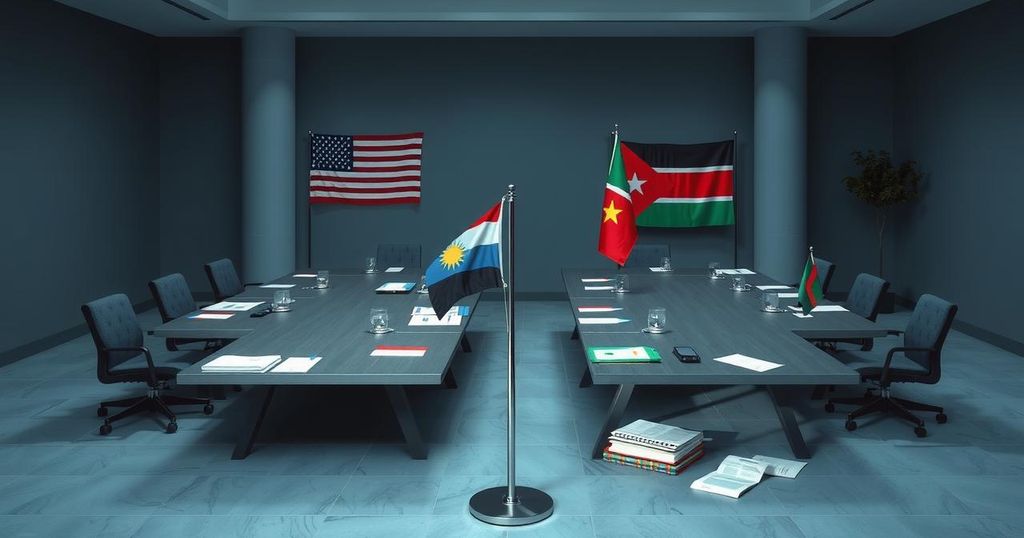Tensions between the US and South Sudan have escalated following South Sudan’s refusal to accept a deported man, prompting the US to revoke visas for South Sudanese citizens. The decision raises humanitarian concerns, especially for those under Temporary Protected Status. Political analysts criticize the move as unfair and damaging to fragile diplomatic relations, while US representatives advocate for reversing the decision and supporting affected community members.
The diplomatic relations between the United States and South Sudan have deteriorated following South Sudan’s refusal to accept a deported individual. The individual was claimed to be a Congolese national using South Sudanese travel documents. In response, US Secretary of State Marco Rubio criticized South Sudan for not cooperating on deportations, stating that every country should accept its citizens’ return. Consequently, the US has imposed a visa revocation on all South Sudanese passport holders.
The ongoing political crisis in South Sudan, led by President Salva Kiir and Vice President Riek Machar, has intensified, with increasing violence between government and opposition factions. The US government’s recent actions have raised alarms, especially since many South Sudanese citizens had previously been protected under Temporary Protected Status because of the country’s unstable conditions. This protection prevents deportation during turbulent times, thus highlighting the humanitarian implications of the US decision.
Khaled Mahmoud, an Egyptian journalist, remarked on the potential impact of the US visa revocation, observing that it undermines humanitarian principles historically upheld by the nation. Moreover, Abiol Lual Deng, an analyst, questioned the fairness of targeting South Sudan over a single deportation issue and noted that it could pressure smaller nations to conform to US demands.
South Sudanese officials have labeled the US actions as unjust, contending that the deportation case was not indicative of broader failures in cooperation. Following this, they did eventually allow the deported individual, identified as a Congolese national, entry into the country. However, it remains uncertain whether he will be allowed to stay or be deported back.
The US’s visa restrictions may greatly affect South Sudanese individuals residing in the US, including over 100 people under the Temporary Protected Status program, as well as numerous athletes and students pursuing education and sports opportunities. In response, North Carolina Democratic representatives have reached out to Secretary Rubio, underscoring that South Sudanese visa holders should not be penalized for political disputes, as they contribute positively to their communities and the economy.
In summary, the diplomatic rift between the United States and South Sudan exacerbates existing humanitarian concerns as visa revocations threaten South Sudanese citizens’ statuses. This incident reflects the complexities of international relations, particularly for smaller nations facing internal crises. Stakeholders have called for reconsideration of the measures, emphasizing the need to separate diplomatic disagreements from the well-being of individuals affected.
Original Source: www.dw.com






